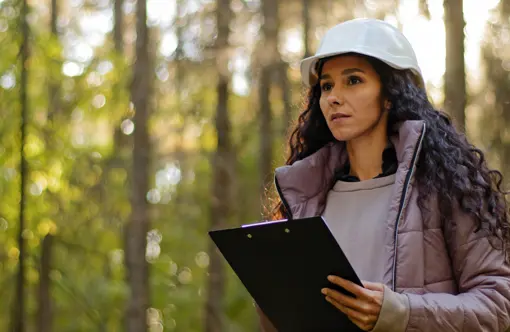What does an ecologist do?
As an ecologist you will be responsible for site visits to undertake study and surveys of animal, plants, and the environment to ensure accurate data on the impact of construction projects.
The job role of an ecologist involves the following duties:
- Visiting sites to undertake surveys of animals, plants and their environment
- Researching the impact of construction and other human activity
- Building computer models to predict effects of construction work
- Advising on legal regulations in relation to protected species
- Identifying and recording details of habitats and species
- Producing reports detailing the potential environmental impact of any disruption to the environment and making recommendations on how best to manage it
- Analysing data collected
- Advising project stakeholders
- Providing expert advice on environmental legislation
- Preparing reports and recommendations
- Visiting site during construction to monitor that all works are carried out as agreed
- Advising planners, engineers, designers and construction firms
- A career as an ecologist will usually involve working standard office hours, Monday to Friday
- Likely to be occasions when it is necessary to work late or at weekends, particularly in more senior roles.







